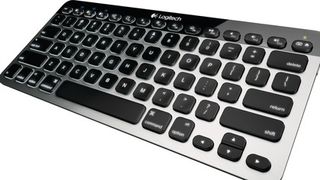Could robots be the writers of the future?
Superceded by a generation of automated writers
That idea of collaboration and is already popular in the wider publishing industry. Aging author Wilbur Smith recently signed a £15 million six-book deal with HarperCollins, though in doing so he announced that he will use a team of co-writers so that he can publish two books each year. The author of Elephant Song and Time To Die hasn't said he'll be using robots to write his expansive African novels, but it does suggest that notions of authenticity are becoming dated.
Whether they're becoming dated enough for robots to take-over is another matter. "How many novels do you know that do not include a human character somewhere?" asks Andrew Philpott, Product Manager at NewNovelist, software that helps budding authors structure and write their novel.
"Homers Iliad and Odyssey were written thousands of years ago and although the world has changed, they still provide great entertainment today because they are human," he says, insisting that when someone reads a novel they create a relationship with the author. "If I had the chance, I would love to spend some time with Homer, but would I really want to spend hours with a soulless box of diodes while it tells me a story?"
Could a robot write a novel?
The short answer is 'almost', though not a good one. "Most automated writing software works by imitating samples from human writing," says Dr John Lee, Assistant Professor in Chinese, Translation and Linguistics at the City University of Hong Kong, whose research group is developing an app that mines word usage and sentence structure patterns from a database of poems from an anthology of Classical Chinese poems written during the Tang Dynasty.

"Based on these patterns, it suggests the next words to the user as he or she composes a poem," says Dr Lee, who insists that short poems are one thing, and long novels something else entirely. For anything longer than a few pages software must move on a peg or two and be able to learn not only word usage, but also plot development and characters' personalities and behaviours.
"It would be most difficult for robots to create texts that require both creative content and high-quality language," says Dr Lee. "Computers may one day be able to write decent novels, albeit ones that sound somewhat like others, but they are unlikely to create true masterpieces."
'True' science fiction
The truth is that automated software produces language that's hard to tolerate, let alone enjoy. "Perhaps one day technology and artificial intelligence will develop sufficiently to allow robots to write a meaningful, original, fictional works," says Philpott. "However, I think these novels will only be worth reading if robots themselves play a role in our lives as living beings and we share experiences with them." Sci-fi authors have been writing about artificially intelligent robots for decades. Maybe soon it will be their turn to write about us.
Get daily insight, inspiration and deals in your inbox
Get the hottest deals available in your inbox plus news, reviews, opinion, analysis and more from the TechRadar team.
Jamie is a freelance tech, travel and space journalist based in the UK. He’s been writing regularly for Techradar since it was launched in 2008 and also writes regularly for Forbes, The Telegraph, the South China Morning Post, Sky & Telescope and the Sky At Night magazine as well as other Future titles T3, Digital Camera World, All About Space and Space.com. He also edits two of his own websites, TravGear.com and WhenIsTheNextEclipse.com that reflect his obsession with travel gear and solar eclipse travel. He is the author of A Stargazing Program For Beginners (Springer, 2015),

